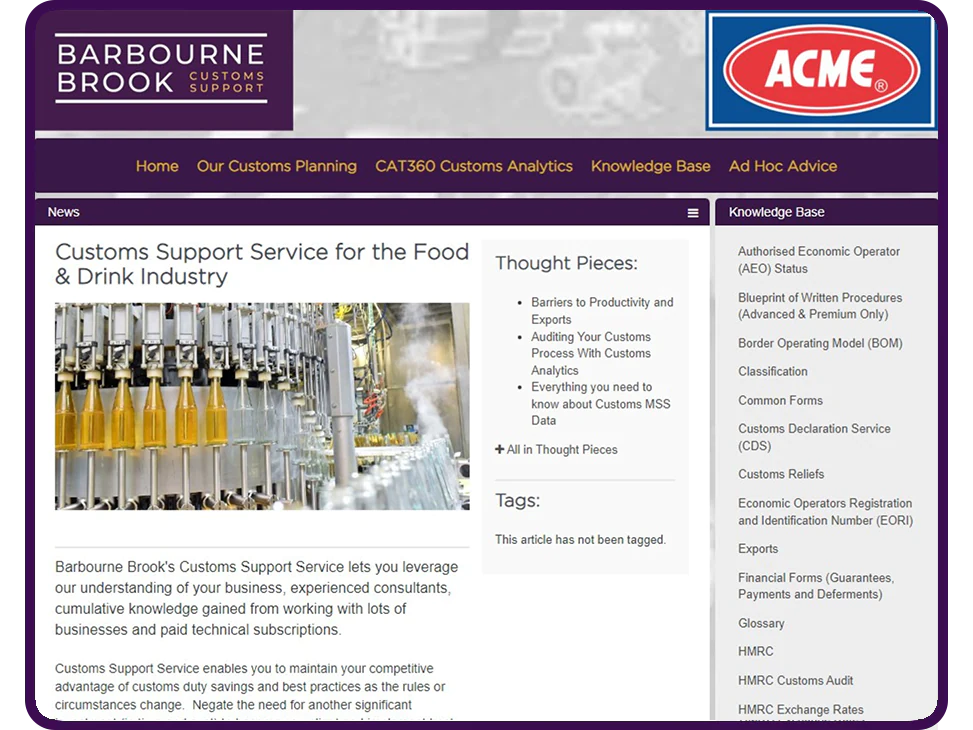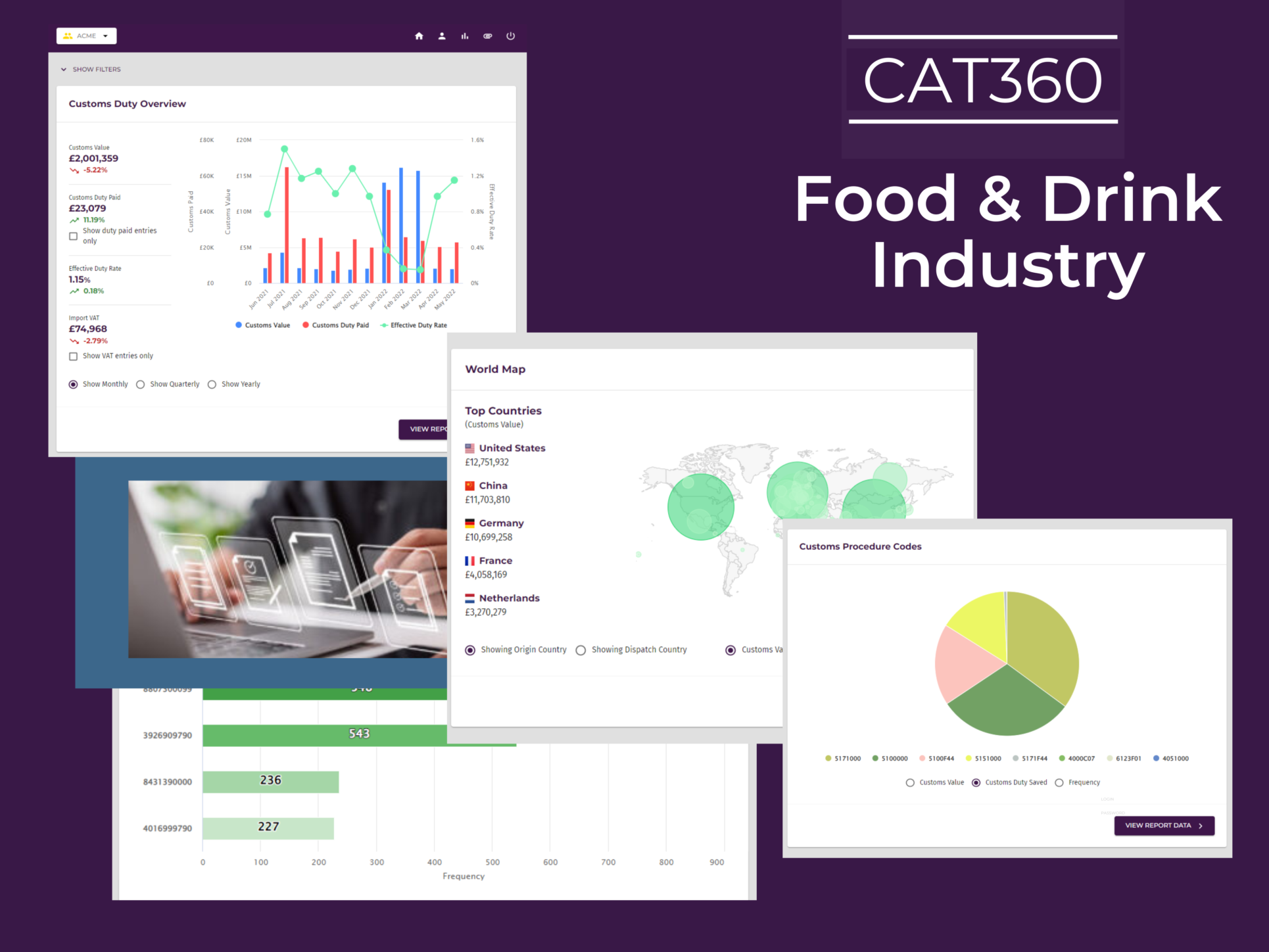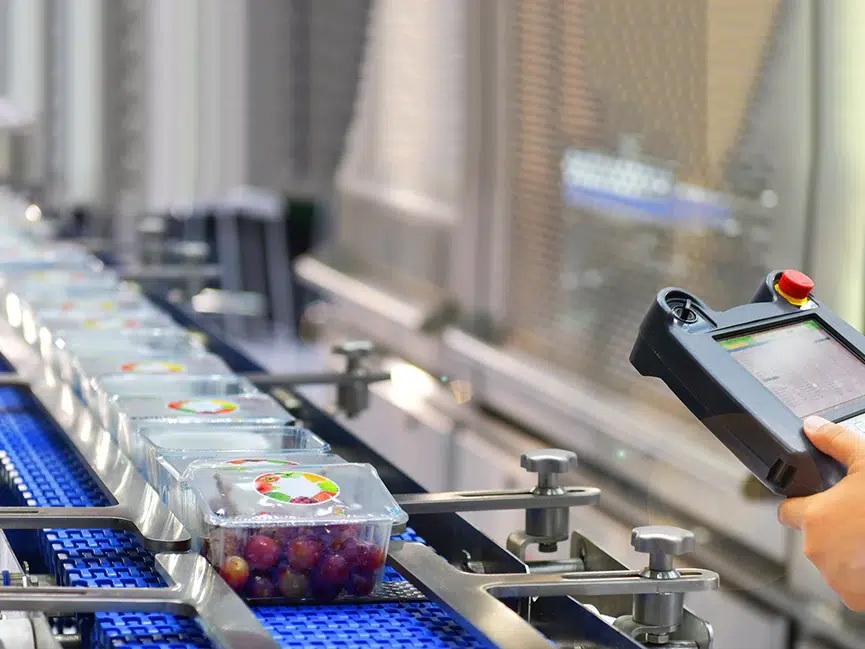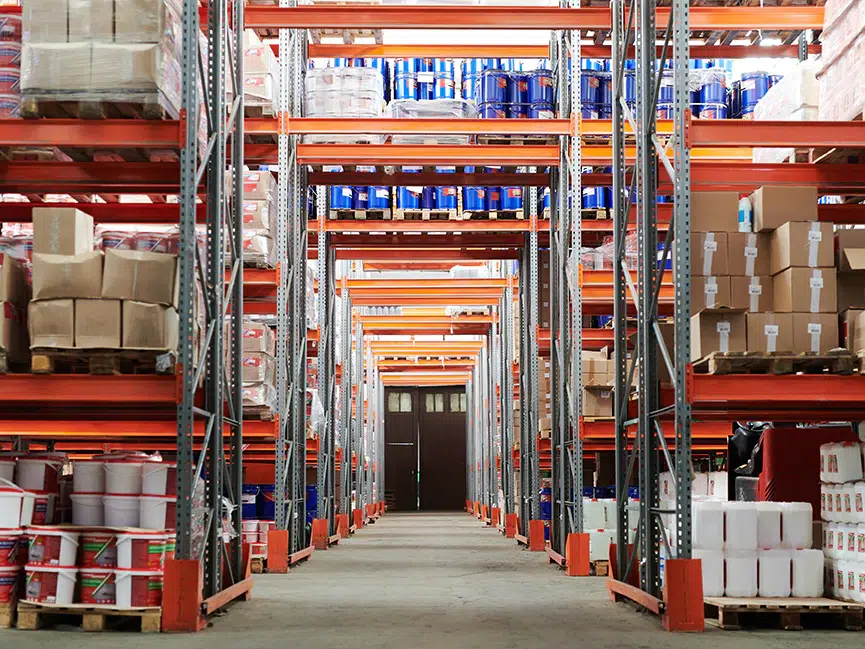Overview
The Food & Drink industry (F&D) is the UK’s largest manufacturing sector and forms part of a diverse and complex supply chain. Customs compliance is a crucial part of this supply chain, driven mainly by complex rules of origin and high duty rates. Small errors can snowball over time into large exposures, leading to penalties, fines and loss of reputation.
When it comes to food and drink importing or exporting, efficient customs planning is essential in ensuring a smooth supply chain. We can provide expert guidance and support on all aspects of customs planning.
How Barbourne Brook can help you:
Duty Mitigation
The duty rates in the food and drink sector are typically very high and contentious. In addition, nuances around classification can have a major effect on the cost of sales, so it's important to take advantage of duty mitigation for your business.
For example, if you imported noodles, then depending on the commodity code you use, there are a variety of rates:

*Based on £0.45p per kilo on 100,000 kilos
As you can see, by applying for the ambient noodle rate, the saving is £11,900 per shipment.
Our team are experts in product classification, meaning we can secure the best rate possible whilst maintaining your compliance obligations. This is particularly pertinent within the food and drink sector, where the duty variance is so great.
Tariff Inversion
If the duty rate for the finished product is lower than the sum of its parts, you can apply tariff inversion to benefit from the lower duty rate.
For example, if you import plastic packaging at 6% and fill it with food products with a 0% duty rate, then you can use the lower rate (0%) for the whole transaction.
The F&D sector commonly use this to reduce the cost of sales and increase margins.
Use of Free Trade Agreements (FTA’s)
In order to benefit from free trade, businesses must meet strict rules of origin and claim preference. Failure to do either correctly will increase the hidden risk of non-compliance, penalties and increased cost of sales.
There is a common trend within the F&D sector where the volume of transactions and stretched resources means risks are not picked up until an audit. Conversely, there is often overpaid duty where preference has not been claimed, and businesses are sitting on pots of reclaim opportunity.
Duty Reclaims for Food & Drink
Due to the complex nature and volume of transactions, there are often hidden costs within food and drink companies' supply chains. Overpaid duty can be reclaimed going back 3 years (in most cases) and injected back into the businesses. The most common areas where overpaid duty lies:
- Incorrectly classifying goods;
- Missing preference claims under FTAs;
- Not claimed tariff suspensions or quotas on qualifying products.
Our team of experts uses industry knowledge and data analytics to assess opportunities quickly. We can then manage the whole process from start to finish, including dealing with the customs authorities. As we work entirely contingently for duty reclaims, there is no upfront risk or investment needed to explore the opportunity. If successful, we will take our fee from the reclaimed amount.
We work with the customs authorities to ensure the claim is viable before we submit it. Where necessary, we can also assist businesses in obtaining an Advanced Tariff Ruling (ATR) which binds the decision for a period of three years.
Customs Support Services for Food & Drink Businesses
The food and drink industry is facing rising costs at a time when legislation is frequently changing. Typically, the industry is struggling to keep up with the fast pace of change whilst maintaining margins. This is further compounded by increased activity and scrutiny from customs authorities.
Our flexible monthly Customs Support service can offer businesses peace of mind by ensuring they keep on top of the ever-changing customs landscape. Our packages range from purely supportive to a full-service option where we effectively become your outsourced customs team. This is a cost-effective way of managing your compliance risk without increasing headcount.


Customs Landscape for Food & Drink
The ever-changing compliance obligations within the customs space are a real concern within the food and drink industry. For the first time in over 30 years, the UK is working with a completely new set of rules due to leaving the EU. Businesses often come to us asking the wrong questions and have hidden risks that are completely unknown.
Our Customs Landscape product is a deep dive into your current structure to identify risks and opportunities. Where there are exposures, we can help quantify the materiality and work with you to resolve them. Where there are development areas, we can advise how best to implement change. Conversely, where there are opportunities to reduce your cost of sales, we will set out the options and return on investment.
CAT360 for Food & Drink Businesses
CAT360 is a customs duty planning software that can help businesses in the Food and Drink industry save time and money. The software can be used to create accurate duty plans for importing or exporting products, and can also be used to track changes in duty rates. CAT360 can help businesses to avoid paying too much duty on their products, and can also help them to plan for any changes in duty rates that may occur in the future. In addition, CAT360 can help businesses to keep track of their customs documentation, and can even generate reports on the status of their shipments.
If you are looking for a way to save time and money on your customs duties, then CAT360 is worth considering. It is a powerful tool that can make a big difference in your business. Contact Barbourne Brook today to learn more about how CAT360 can help your food and drink business.


Inward Processing Relief for Food & Drink Businesses
Inward Processing Relief (IPR) is a customs procedure that allows businesses to import goods from outside the EU and export the processed goods back to non-EU countries without paying customs duties or VAT. This can be a useful way for businesses in the food and drink sector to save money on production and import costs.
Your business may also benefit from a lesser-known branch of IPR called ‘Tariff Inversion’. This is where goods can be imported under IPR at a higher duty rate and then be processed into goods with a lower duty. You then only pay the lower duty payment of the transaction.
As a leading provider of inward processing relief services, Barbourne Brook has a team of experts who can help you navigate the complexities of the IPR process and ensure that you comply with all EU regulations. In addition, we can help you make the most of IPR opportunities, such as duty-free imports of raw materials and components.
Customs Warehousing for Food & Drink Businesses
The food and drink industry is one of the most complex and regulated industries in the world. With a global supply chain, businesses in this sector must navigate a myriad of rules and regulations relating to customs, excise, VAT and other taxes.
Customs warehousing is the storage of goods in a designated warehouse before they are released for sale on the market. This allows businesses to avoid paying import duties on their products until they are ready to be sold, which can save them a significant amount of money.
There are many benefits to using customs warehousing for businesses in the food and drink industry. Firstly, it can help businesses to manage their cash flow more effectively as they will not have to pay import duties upfront. Secondly, it can help businesses to avoid delays in getting their goods to market as they will not have to go through the customs clearance process each time they want to move goods in and out of the warehouse.

Other Sectors We Help:
Barbourne Brook supported our UK and European business in a very professional and diligent manner and was available at a moments notice to give advice and run with whatever was thrown at them, many times under extreme pressure on deadlines.John Fletcher, General Manager, VBR Turbine Partners BV
Contact Us
How can we help?
We are on-hand to help with all of your customs need. Provide us with some details on your circumstances and one of our friendly experts will be in touch to provide support and advice.